Ever wonder why the United States of America’s largest teachers’ unions, the National Education Association (NEA) and the American Federation of Teachers (AFT), have been pushing for the privatization of public schools? or why they have also been pushing through ed-tech contracts with Big Tech corporations, such as Microsoft, Google, Apple, and IBM?
While the NEA and the AFT have recently justified public school partnerships with private ed-tech corporatization on the grounds that virtual “distance learning” is necessary to protect students from COVID-19 infections, these teachers’ unions have a long history of cozying up to Big Tech. These very same Big Tech companies just so happen to also be facilitating the courseware necessary for online education.
Furthermore, the NEA and the AFT are both members of the Global Union Federation (GUF) known as “Education International” (EI), which appoints delegates to the World Economic Forum (WEF), which likewise partners with Microsoft, Google, Apple, and IBM. Considering these crony corporatist collusions between the NEA, the AFT, EI, the WEF, and Big Tech, it appears that these national and international teachers’ unions are exploiting COVID panic in order to ram through public-private ed-tech partnerships with multinational technology companies that are driving the globalist “Fourth Industrial Revolution” (4IR), which is being spearheaded by the oligarchs affiliated with the WEF.
To illustrate, one of the Founding Presidents of EI was AFT President Albert Shanker, a Trilateral Commission member who met with “the head of IBM” before conceptualizing public-private charter school corporations. This evolved into the virtual charter schooling industry that has since spawned companies like US Secretary of Education William Bennett’s K12 Inc. The other Founding President of EI was NEA President Mary Futrell, who served on the Board of Directors of K12 Inc., which Bennett commercialized as an outgrowth of the US Department of Education’s Project BEST (Basic Education Skills through Technology). Project BEST was the USA’s domestic version of a United Nations Education Scientific and Cultural Organization (UNESCO) project known as “Study 11,” which set up the international “information technology” (IT) infrastructure for what is now called the Fourth Industrial Revolution. Other prominent NEA and AFT members of EI presently include:
- Randi Weingarten: the current AFT President and a current EI Board Member;
- Lily Eskelsen Garcia: the President of the NEA from 2014 to 2020 and a current EI Vice President, who holds a “master’s degree in instructional technology”;
- David Edwards: a former Associate Director of the NEA and the current EI General Secretary, who is now advocating for schools to embrace a post-COVID “new normal” built upon ubiquitous ed-tech.

With these AFT and NEA officials holding high office at EI since the GUF’s inception, these US national teachers’ unions have tethered essentially all of the USA’s unionized educators to the globalist policies of EI in collaboration with the WEF.
In my previous article for Unlimited Hangout, I documented how the WEF has been lording over EI bureaucrats who direct the marching orders of the AFT and the NEA along with 381 other EI “member organizations” encompassing “32 million teachers and education support personnel in 178 countries and territories.” More specifically, my report detailed how the WEF’s “Great Reset” has been commissioned to EI bureaucrats, including Robert Harris, Fred van Leeuwen, and Jelmer Evers, who have passed down the global “Reset” agenda to national teachers’ unions, such as the AFT and the NEA. As a result, educators and school staff are being stirred up to “reimagine” learning through corporate ed-tech innovations geared for the Fourth Industrial Revolution. To put it bluntly, my last article, “How Education International Is Pushing Teachers’ Unions into the Fourth Industrial Revolution,” revealed how the puppet strings of national teachers’ unions, including the AFT and the NEA, are dangled from these EI operatives and controlled by the WEF at the top of the technocratic chain of command.
In this article, I will now expose how two more EI globalists, David Edwards and Sharan Burrow, both collaborate with the WEF to corral nearly all the world’s unionized teachers under the GUF monolith of EI, which partners with the International Trade Union Confederation (ITUC), in order to herd local teachers’ unions into the Fourth Industrial Revolution. As I’ve previously noted, this “revolution” is being accelerated by the WEF’s Great Reset in coordination with the world governance arms of the United Nations (UN), the Organization for Economic Cooperation and Development (OECD), the International Monetary Fund (IMF), and the World Bank.
By consolidating ostensibly all of the planet’s teachers and education professionals under the single GUF of EI, in coordination with the ITUC, Edwards and Burrow are galvanizing all school workers into a uniform one-world workforce that marches in lockstep with the corporate-technocratic directives of globalist oligarchs at the WEF, the UN, the OECD, the IMF, and the World Bank. Rather than representing local teachers and other school workers at the international bargaining tables of these global governance institutions, Edwards and Burrow are co-opting local educators by signing them on to the WEF’s technocratic Great Reset, which is expediting the Fourth Industrial Revolution that is being ushered in with the help of the UN, the OECD, the IMF, and the World Bank.
David Edwards’s “New Normal”: Transhumanist AI Ed-Tech for Social Credit Data-Mining
After twenty-four years reigning as the Founding General Secretary of EI, the Dutch academician Fred Van Leeuwen was replaced by former NEA Associate Director David Edwards, a US citizen who remains the General Secretary of EI to this day. Now, as EI General Secretary, Edwards holds simultaneous membership in the WEF, and he has collaborated with the OECD and several branches of the UN. Straddling EI and the WEF, Edwards has joined forces with the OECD to promote a post-COVID “new normal” in which ed-tech is globalized for the Fourth Industrial Revolution. He has also been connected to “impact investment” and Social Credit projects tied to the UN and the WEF.
In his official capacity as the General Secretary of EI, Edwards participated in the WEF’s 2019 Annual Meeting, which commenced the WEF’s “Preparing Civil Society for the Fourth Industrial Revolution” initiative. According to the “Civil Society at the World Economic Forum Annual Meeting 2019 Fact Sheet,” this WEF-4IR initiative is “aimed at helping civil society to meet the challenges presented by rapid technological change. The initiative provides a multi-sector platform to accelerate responsible technology practice and the future readiness of civil society through cross-sector learning, collaboration and investment.”
Stated differently, this WEF-4IR initiative, which kicked off at the 2019 Annual Meeting with Edwards in attendance, fast-tracks the evolution of futurist technologies, including ed-tech, through a globalist system of “stakeholder capitalism” in which world governance bodies, such as the WEF, the UN, the OECD, the IMF, and the World Bank, orchestrate “multi-sector” and “cross-sector” public-private partnerships between for-profit corporations, non-profit foundations, financial firms, government agencies, educational institutions, “community” organizations, and even labor and professional unions, such as EI.
During this same WEF Annual Meeting, EI General Secretary Edwards served on a panel titled “Protecting and Empowering Workers in the Fourth Industrial Revolution.” According to the WEF’s 2019 Annual Meeting “Fact Sheet,” this “Civil Society Community Session” panel, which was moderated by former EI Vice President Sharan Burrow, “invited participants to reflect on existing efforts from labour and industry leaders to build a future for workers in the Fourth Industrial Revolution.” Also serving on this panel with Edwards was Sherif Elsayed-Ali: the“Director of AI [Artificial Intelligence] for Good Partnerships” at Element AI.
During this same WEF meeting, Elsayed-Ali also participated in another panel entitled “Responsible Innovation for Social Impact,” which “highlighted experiences from civil society and industry in leading processes for responsible digital transformation in their social impact work.” This panel also included Louise James, who is the Managing Director of Development Partnerships at Accenture, which is partnering with the UN, Microsoft, Mastercard, and the Rockefeller Foundation through the ID2020 project. That project aims to set up a worldwide system of “global digital ID” that tracks “Social Credit Scores” financed by “social impact investments.”
In brief, through this WEF-4IR panel, EI General Secretary Edwards explored techno-futurist workforce planning policies with fellow WEF member, Eslayed-Ali, who is spearheading “social impact” AI programs in collaboration with technocrats at Accenture, which is building a global digital ID grid. It is worth noting here that I have previously documented how the AFT, which is a satellite of EI, has been advancing public-private community-school “pipeline” services, including job-placement, healthcare, and crime-prevention “wraparound services,” financed by “social impact investments” that digitally track students’ Social Credit algorithms through ed-tech data-mining.
The next year after the WEF 2019 Annual Meeting, in a June 2020 article published by OECD Education and Skills Today, EI General Secretary Edwards capitalized on COVID lockdowns as an opportunity to lock “government” and “union” stakeholders into public-private ed-tech partnerships, partnerships that facilitate the digital data-mining infrastructure necessary for Social Credit surveillance and social impact investment markets. Pointing to the educational “disruption” from COVID lockdowns as a “crisis” that shouldn’t go to waste, Edwards makes the case for a “new normal” in which “governments” and teachers’ “unions” partner with ed-tech companies to equip schools with the tools needed to transmit “online education” at all times:
“[t]he pandemic has exposed the many inadequacies and inequities in our education systems – from the broadband and computers needed for online education, through the supportive environments needed to focus on learning, up to the difficulties found to align teaching resources with needs. However, as these inequities are amplified in this time of crisis, this moment also holds the possibility that we will not return to the status quo when things get back to ‘normal.’ Governments and unions can act jointly and it is the nature of these collective and systemic responses to the disruptions that will determine how we are affected by them. There is a clear path forward.”
By stressing the need to ensure that all students have equitable access to virtual “online education” technologies in the “new normal,” even after any epidemiological justification disappears, Edwards’s OECD article ostensibly calls for government administrators and unionized teachers to take “a clear path forward.” That path involves “upgrading” schools with the ed-tech and digital ID networks necessary to data-mine student outcomes for social impact financing in the Social Credit economy of the Fourth Industrial Revolution. It should be noted here that the OECD has spearheaded efforts to establish international standards for multinational courseware exchanges in coordination with the US Department of Education under the aegis of Assistant Secretary of Ed, Donald Senese, who attended a 1984 OECD Centre for Educational Research and Innovation conference while carrying out Project BEST and UNESCO Study 11, which laid the global IT infrastructure for the Fourth Industrial Revolution.
To be sure, more recently, in April of 2021, Edwards published an EI article, “On Edtech, the Public Good, and Democracy,” which critiques the COVID-era expansion of public-private ed-tech partnerships that corporatize schools with commercialized “artificial intelligence” products utilizing “algorithms” to data-mine students. Nevertheless, Edwards concedes that, “[f]ollowing the pandemic, new technology is not going to disappear from schools.”
Therefore, according to Edwards, “it is urgent to cull through experience, evaluate impact and measure positive and negative effects.” Of course, Edwards acknowledges that, “[i]f adapting education to the impact of COVID-19 accelerates the long-term integration of ed-tech companies into the infrastructure of education, that may have a lasting impact.” As a result, Edwards admits that “[s]eparating the ‘good’ from the ‘bad’ may be as challenging as unscrambling an egg.” Obviously, building on this analogy, it is quite impossible to unscramble an egg, which means that we can interpret Edwards’s analogy as his resignation to the fact that the Fourth Industrial Revolution in AI ed-tech will inevitably result in a certain degree of technocratic corporatization which cannot be avoided. In turn, Edwards resolves that the future of education in the post-COVID era must be driven by the education technology industry so long as “educators through their trade unions are at the table when [ed-tech] policy is discussed, developed, and decided.” However, as I’ve noted throughout my “Teachnocracy” series for Unlimited Hangout, these trade unions hardly represent the needs of individual teachers and are instead dominated by their numerous ties to Big Tech and global governance institutions.
Similarly, this EI article echoes a “joint statement” co-authored by EI General Secretary Edwards along with Audrey Azoulay, who is the Director-General of UNESCO; Henrietta Fore, who was the Executive Director of the United Nations International Children’s Emergency Fund (UNICEF); and Guy Ryder, who is the Director-General of the International Labor Organization (ILO), which is the first and oldest UN “specialized agency.”
Published by UNICEF in October of 2020, this joint statement from Edwards and his UN comrades proclaims that:
“[in order to] build a more resilient teacher workforce in times of crisis, all teachers should be equipped with digital and pedagogical skills to teach remotely, online, and through blended or hybrid learning, whether in high-, low- or no-tech environments. Governments should ensure the availability of digital infrastructure and connectivity everywhere, including in rural and remote areas. . . . We call on governments . . . to involve teachers and their representative organizations in the COVID-19 educational response and recovery.”
Like Edwards’s 2021 EI article, this EI-UN joint statement calls for “governments” and “teachers” to coordinate educational “workforce” reforms that “upgrade” the world’s schools with ubiquitous internet “connectivity” hooked up to digital ed-tech that transmits “blended or hybrid learning” curriculums through online platforms which beam virtual instruction into even the most isolated “rural and remote areas.”
It should be noted that EI General Secretary Edwards and his UN cronies have titled this UNICEF proclamation as “Teachers: Learning in Crisis, Reimagining the Future,” which invokes the emergency COVID “reimagine education” campaign of the Bill and Melinda Gates Foundation. That Gates-backed campaign has launched public-private ed-tech partnerships in collaboration with Bilderberger Eric Schmidt, who is a “Technical Advisor” at Google’s parent company: Alphabet Inc.
In my last two Activist Post articles, I documented how the Gates-Google “Reimagine” initiative, which is being parroted by Edwards and his UN cadre, is setting up ed-tech networks that can aggregate cognitive-behavioral and socioemotional “learning analytics” into Social Credit algorithms programmed to restrict a student’s access to public services and commercial markets based on his or her psychometric “Social Scores.”
Even prior to the COVID expansion of ed-tech, Edwards was mentoring his fellow EI technocrat, Jelmer Evers, who co-authored a 2018 book titled Teaching in the Fourth Industrial Revolution: Standing at the Precipice, which is sponsored by several UNESCO and WEF affiliates, including Irina Bokova, who was the Director-General of UNESCO; Fernando M. Reimers, who is a member of UNESCO’s International Commission on the Futures of Education; Sunny Varkey, who has served as a UNESCO Goodwill Ambassador for Education Partnerships; and Vikas Pota, who was part of the WEF’s 2013 class of Young Global Leaders [1]. In the “Acknowledgments” prelude to Teaching in the Fourth Industrial Revolution, EI activist Jelmer Evers “thank[s] [EI General Secretary] David Edwards and [EI General Secretary Emeritus] Fred van Leeuwen and all of my [Evers’s] colleagues at Education International” for helping to “inspir[e]” Evers’s contributions to this Routledge book [1].
Prompted in part by insights from Edwards, Teaching in the Fourth Industrial Revolution promotes transhumanist ed-tech that utilizes “AI,” “biotech,” “[n]eurotech,” “nanotech,” “[r]obotics,” and other “[i]mplantable [t]ech” which integrates “machine learning” through “Big Data” linked to the “Internet of Things” [1]. It is worth noting here that the “Foreword” to this book was written by none other than WEF Founder and Executive Chairman, Klaus Schwab [1], who has been touting the purported wonders of transhumanist 4IR tech which he predicts will “fus[e] . . . our physical, our digital, and our biological identities.”
To sum up, in collaboration with the WEF, the OECD, and the UN, EI General Secretary Edwards has been coordinating international efforts to convert unionized teachers into technocratic managers of digital school-to-work curriculums designed to train students for hi-tech workforce competence in the “impact-financed” Social Credit economy of the transhumanist Fourth Industrial Revolution.
Sharan Burrow and the EI-ITUC Connection: A Brave New World Order
Near the apex of the EI chain of command, above Edwards’s status as General Secretary, is an Australian named Sharan Burrow, who has reigned as Vice President of EI from 1995 to 2000. After her tenure as EI Vice President, Burrow, who was the President of the Australian Council of Trade Unions, became the President of another Global Union Federation: the International Confederation of Free Trade Unions (ICFTU). Burrow held the ICFTU presidency from 2004 until 2006 when the ICFTU merged with the World Confederation of Labor (WCL) to form a new GUF, the International Trade Union Confederation (ITUC). At ITUC, she was appointed as the ITUC Founding President. In 2010, Burrow transitioned from ITUC Founding President to ITUC General Secretary. To this day, Burrow remains the General Secretary of the ITUC, which is an affiliate of EI as both GUFs are members of the Council of Global Unions (CGU) as well as the Trade Union Advisory Committee of the OECD.
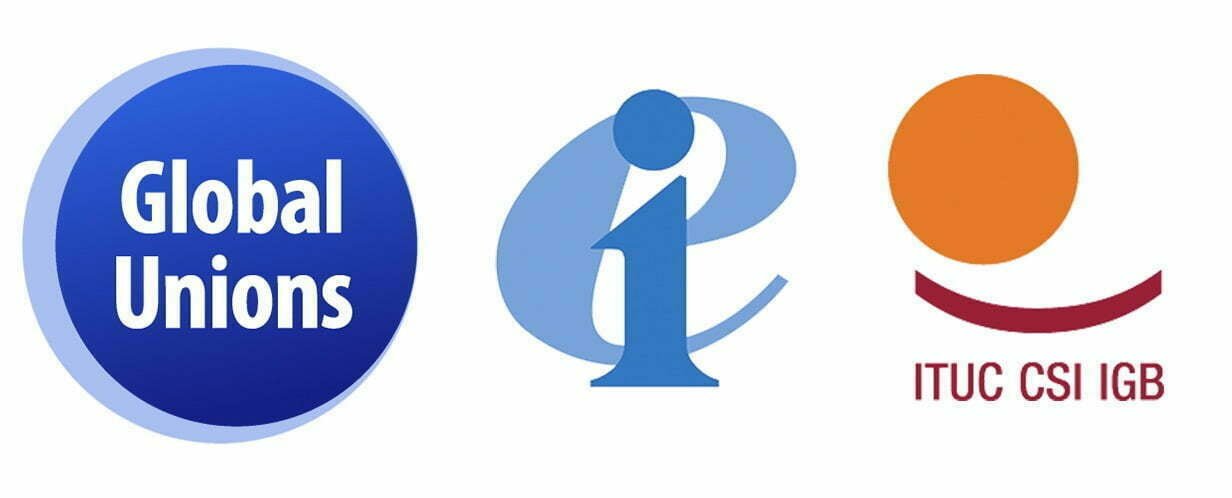
Meanwhile, Burrow has spoken at the G20; served on the Governing Body of the ILO; held several prestigious positions at the WEF; and collaborated with the UN, the World Bank, and the IMF. With her web of connections to these pillars of world governance, international finance, and Global Union Federations, such as EI and the ITUC, Burrow has been rallying teachers around ed-tech innovations geared for Social Credit data-mining and social impact investing in the Fourth Industrial Revolution.
In 2016, Burrow was a Chair of the WEF Annual Meeting, which was themed “Mastering the Fourth Industrial Revolution.” Burrow’s Co-Chairs included Satya Nadella, who is the Chair and CEO of Microsoft; Hiroaki Nakanishi, who was the Chair and CEO of Hitachi; and Tidjane Thiam, who was the CEO of Credit Suisse in Switzerland; Mary Barra, who is the Chair and CEO of General Motors; and Amira Yahyaoui, who is the Founder of the WEF’s Global Shapers Community initiative. Presaging the proliferation of post-human virtual reality in the Fourth Industrial Revolution, this WEF Annual Meeting premiered “[a] virtual reality [VR] film, Collisions, supported by the Sundance Institute, Ford Foundation and Jaunt VR.” At another session entitled “Robots in Action,” the WEF offered an “interactive exhibition” in which conference members could “[e]ngage with experts on artificial intelligence . . . focusing on human-robot collaboration.”
In a “Media Fact Sheet” for this 2016 Annual Meeting, the WEF welcomed the transhumanist techno-evolution of the Fourth Industrial Revolution:
“[b]uilding on a ubiquitous and mobile internet, smaller, and more powerful sensors, as well as artificial intelligence and machine learning, the Fourth Industrial Revolution is distinct in the speed, scale and force at which it transforms entire systems of production, distribution, consumption—and possibly the very essence of human nature.”
In brief, Burrow and other corporatist technocrats co-chaired this pivotal WEF-4IR meeting to advocate for the post-human advancement of robotic and VR technologies programmed with AI machine learning that could evolve “human-robot” mergers through “powerful sensors” that could alter “the very essence of human nature.”
Full speed ahead, Burrow has been pushing the WEF’s Great Reset to fast-track the Fourth Industrial Revolution. In June 2020, Burrow kicked off the Great Reset with Prince Charles of Wales, WEF Chairman Klaus Schwab, IMF Chief Kristalina Georgieva, IMF Chief Economist Gina Gopinath, UN Secretary-General Antonio Guterres, and the Chief Executives of Microsoft and Mastercard. At the WEF’s inauguration of the Great Reset, Burrow professed that the COVID-19 crisis could be used as an “opportunity to design a better world” by “rebalancing economies” with new “technology systems” through public-private stakeholder partnerships between “both national and multilateral institutions” in a “sustainable framework.”
That same year, in 2020, Burrow was a “Co-Chair” of the WEF’s first Global Technology Governance Summit, which concentrated on “Responding to the Fourth Industrial Revolution” by exploring the possibilities of “Artificial Intelligence,” “Quantum Computing,” “Autonomous Vehicles,” “Drones,” “Big Data,” “the Internet of Things (IoT),” “Blockchain,” “Digital/Crypto Currencies,” “Cybersecurity,” “Gene Editing,” and “Synthetic Biology.” As Co-Chair, Burrow collaborated with “more than 50 governments and 300 companies worldwide. Among the 600 stakeholders are senior public figures, policy-makers, executives and experts from: Government, Industry, International Organizations, Start-Ups, Civil Society, Academia, [and] Media.”
In summary, as General Secretary of the ITUC, which is an affiliate of EI, former EI Vice President Burrow has been driving the WEF’s Great Reset by orchestrating techno-fascist stakeholder globalization through public-private partnerships between multinational corporations, national governments, academic institutions, and trade and professional unions, including teachers’ unions. By steering stakeholder globalization toward the WEF’s Great Reset, Burrow has been laying the groundwork for a Brave New World of transhumanist 4IR tech that eventually aims to genetically engineer those destined for workforce serfdom in a Huxleyan “scientific caste system” of literal human resources who can be conditioned with ed-tech. Such ed-tech, as we are already seeing, is hooked up to Big Databases on quantum computers programmed with AI, which can track and trace students’ Social Credit algorithms through a blockchain IoT [2].
Currently, Burrow is a “Member” of the WEF’s “Global Future Council on Advanced Manufacturing.” Last year, in 2021, she was also a Member of the WEF’s Global Risks Report Advisory Board along with the following WEF Advisory Board Members:
- Winnie Byanyima, who represented the UN as the Executive Director of the Joint United Nations Programme on HIV and AIDS (UNAIDS);
- Al Gore, who represented Generation Investment Management (GIM) as the Chairman of GIM and is on the WEF’s board of trustees;
- Moisés Naím, who represented the Carnegie philanthropies as a Distinguished Fellow of the Carnegie Endowment for International Peace;
- Jonathan Ostry, who represented the International Monetary Fund as the Deputy Director of the Research Department of the IMF.
Additionally, Burrow has also served as a “Steward” of several WEF initiatives, including “Shaping the Future of New Economy and Society”; “Shaping the Future of Gender, Education and Work”; and “Shaping the Future of Global Public Goods.” All three of these Platforms partner with Hewlett Packard Enterprise (HPE), Hewlett Packard Inc. (HP), Microsoft, Salesforce, the Gates Foundation, Bank of America, and Barclays.
Both the Platform for Shaping the Future of New Economy and Society, which is now renamed as the “Centre for the New Economy and Society” (CNES), and the Platform for Shaping the Future of Gender, Education and Work partner with Accenture, AT&T, Google, Infosys, LinkedIn, Nokia, PayPal, Bloomberg, and the New York Stock Exchange (NYSE) Group. At the same time, both the CNES and the Platform for Shaping the Future of Global Public Goods, which is now renamed as the Centre for Nature and Climate (CNC), have partnered with Amazon, Dell Technologies, the European Investment Bank, the Islamic Development Bank, McKinsey & Company, the Open Society Foundations, and Johnson & Johnson. Meanwhile, both the Platform for Shaping the Future of Gender, Education and Work and the CNC have partnered with Boston Consulting Group.
Separately, these three WEF “Platforms,” which have been “stewarded” by ITUC General Secretary Burrow, have partnered with the following Big Tech industries, multinational ed-tech companies, Big Energy cartels, biotech businesses, Big Banking houses, international financial firms, fiscal consulting agencies, globalist tax-exempt foundations, corporate non-profit organizations, and world governance institutions:
- CNES: Cisco, Coursera, EdCast, IBM, Intel, Verizon, VMware, Zoom, American International Group, Bain & Company, BMO Financial Group, BNY Mellon, Deutsche Bank, Sequoia Capital, Standard Chartered Bank, Visa, and Merck;
- Platform for Shaping the Future of Gender, Education and Work: Global Education Management Systems (GEMS Education), Pearson, MIT Initiative on the Digital Economy, the Rockefeller Foundation, the International Finance Corporation, UBS, the ILO, and GlaxoSmithKline;
- CNC: Apple, Huawei Technologies, LanzaTech, Prospera Technologies, SINAI Technologies, Sony, Mitsubishi, China Southern Power Grid, China Energy Investment, African Development Bank Group, Banco Bradesco, Bank of Industry, BlackRock, Citi, CVC Capital Partners, Development Bank of Southern Africa, Gulf International Bank, HSBC, Mastercard, Morgan Stanley, Prudential, Qatar Investment Authority, Rabobank, Standard Bank Group, Standard Chartered Bank, the Wellcome Trust, AstraZeneca, Bayer, Biogen, Syngenta, Trace Genomics, Dow Chemical, BP, Chevron, Crescent Petroleum, and Royal Dutch Shell.
To put it all together, as General Secretary of the ITUC, an affiliate of EI, Burrow has been stewarding key WEF stakeholder partnerships that are globalizing the future of “goods” produced through hi-tech “work” in the techno-fascist “new economy” of the 4IR.
Burrow has also represented the ITUC on several World Bank panels. In addition, Burrow also attended the 2018 Annual Meeting of the IMF where she gave a speech entitled “Social Protections in the Age of Technology.” Moreover, Burrow has served on the Stakeholder Council of the Global Reporting Initiative, which is an international NGO that facilitates data-tracking for “Environmental, Social, and Governance (ESG)” metrics, which are geared for Social Credit Scoring.
Furthermore, in 2015, Burrow gave a speech at a 2015 meeting of the United Nations ECOSOC, which has partnered with IBM to advance social impact investments for sustainable development projects through IMPACT Leadership 21’s “invitation-only private business forums for leaders and investors who seek solutions to meet their Environment, Social and Governance (ESG) objectives through the United Nation’s 17 Sustainable Development Goals (SDG).”
It is worth noting here that, like Burrow, EI General Secretary David Edwards is an avid proponent of the UN’s SDGs. In particular, Edwards has stressed the need for EI to pursue UN SDG 4, which promotes “global citizenship.” In response to the OECD’s “Education at a Glance” report, Edwards stated that EI “welcome[d] OECD’s commitment to SDG 4 and to evaluating its progress.”
In my first installment in this “Teachnocracy” series, I documented how the UN’s SDGs have catalyzed a trillion-dollar impact investment market that is connected to community-based “pay for success” partnerships, which are being bankrolled by IBM, the Rockefeller philanthropies, and Trilateral Commission financiers. At the same time, my article “American Federation of Teachers Sells Out to Rockefellers, Trilateralists, and Big Tech,” details how the AFT, which is a satellite of EI, has likewise pledged its commitment to the mission of UN SDG 4 while advocating for community-school impact investing driven by Social Credit data-mining of students’ learning algorithms.
Don’t Give Me No GUF
For nearly thirty years, GUFs like EI and the ITUC have been led by globalist technocrats, such as David Edwards and Sharan Burrow, who both cavort with world governance institutions, including the World Bank, the IMF, the UN, the OECD, and the WEF. As the General Secretaries of EI and the ITUC respectively, former NEA Associate Director Edwards and former EI Vice President Burrow have been signing on to public-private ed-tech partnerships in order to usher in the Social Credit “impact” economy of the transhumanist Fourth Industrial Revolution.
In turn, the “member organisations” and “affiliated organisations” of EI and the ITUC, including the AFT and the NEA, have been adopting these ed-tech directives from the World Bank, the IMF, the UN, the OECD, and the WEF, thereby passing down these post-human Social Credit policies to EI’s “32 million teachers and education support personnel in 178 countries and territories.”
Simply put, EI, in affiliation with the ITUC, has been steadily corralling the world’s teachers and school employees into a technocentric global workforce that is being herded into the Fourth Industrial Revolution under the public-private marching orders of the World Bank, the IMF, the UN, the OECD, the WEF, and Big Tech. To be frank, it increasingly appears that EI and the ITUC, like all other GUFs, have always been commissioned to function as labor-management arms of the world governance stakeholders of the World Bank, the IMF, the UN, the OECD, and the WEF in collusion with Big Tech.
So, if you’re waiting for EI, the ITUC, or any other GUF to lead a worldwide general strike against transhumanist technocracy, don’t hold your breath. Labor movements and strikes must be organized by grassroots efforts from workers on the ground in their local communities. As long as EI, the ITUC, or any other GUF globalizes organized labor through top-down efforts orchestrated by world governance institutions, the interests of teachers and workers will continue to be subordinated to the techno-imperialist interests of the World Bank, the IMF, the UN, the OECD, and the WEF, which are all in bed with multinational corporations.
If unionized educators, school employees, and other workers who belong to EI or the ITUC cannot sway their GUF bureaucrats to oppose the transhumanist techno-fascism being pushed by the World Bank, the IMF, the UN, the OECD, and the WEF in collusion with Big Tech, then it might be time for teachers, school staff, and other wage laborers to drop out of any union affiliations with EI and the ITUC. Perhaps it is time for the educational workforce and other labor forces to reassemble new grassroots unions to set up parallel structures that represent the interests of teachers and other workers who dissent from the dystopic conditions of the post-human schooling system being thrust upon students and teachers alike.
Endnotes:
[1] Armand Doucet, Jelmer Evers, Elisa Guerra, Nadia Lopez, Michael Soskil, and Koen Timmers, Teaching in the Fourth Industrial Revolution: Standing at the Precipice (New York: Routledge, 2018).
[2] Aldous Huxley, “The Future of the Past,” Aldous Huxley: Complete Essays (Volume II: 1926-1929), eds. Robert S. Baker and James Sexton (Chicago: Ivan R. Dee, 2000), 93.
Ibid, “On the Charms of History and the Future of the Past,” Aldous Huxley: Complete Essays (Volume III: 1930-1935), eds. Robert S. Baker and James Sexton (Chicago: Ivan R. Dee, 2000), 137.
Ibid, “Science and Civilization,” Aldous Huxley: Complete Essays (Volume III: 1930-1935), eds. Robert S. Baker and James Sexton (Chicago: Ivan R. Dee, 2000), 154.






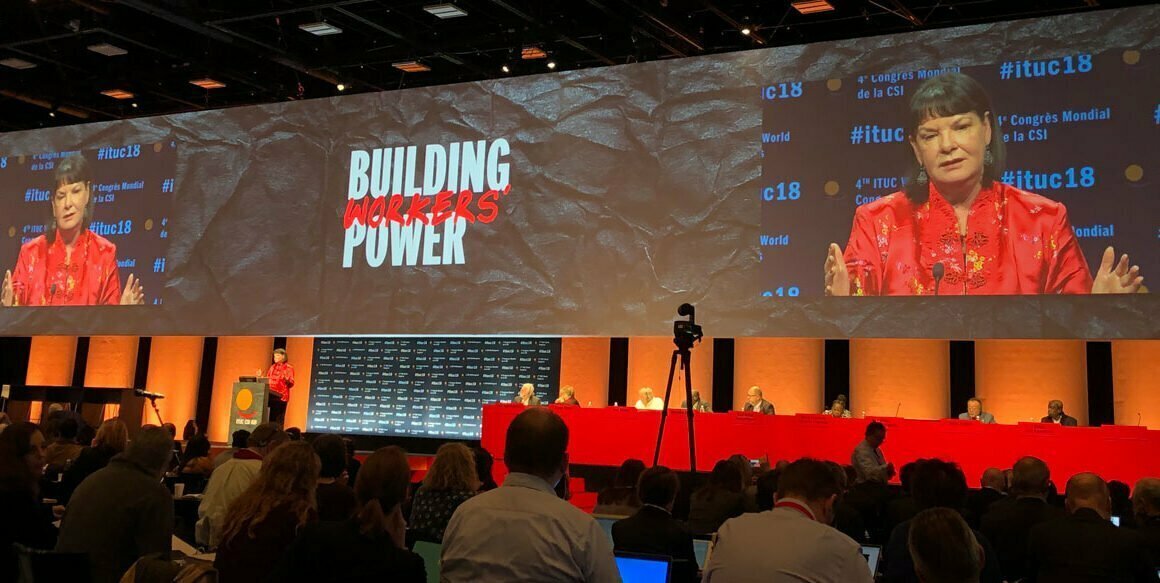


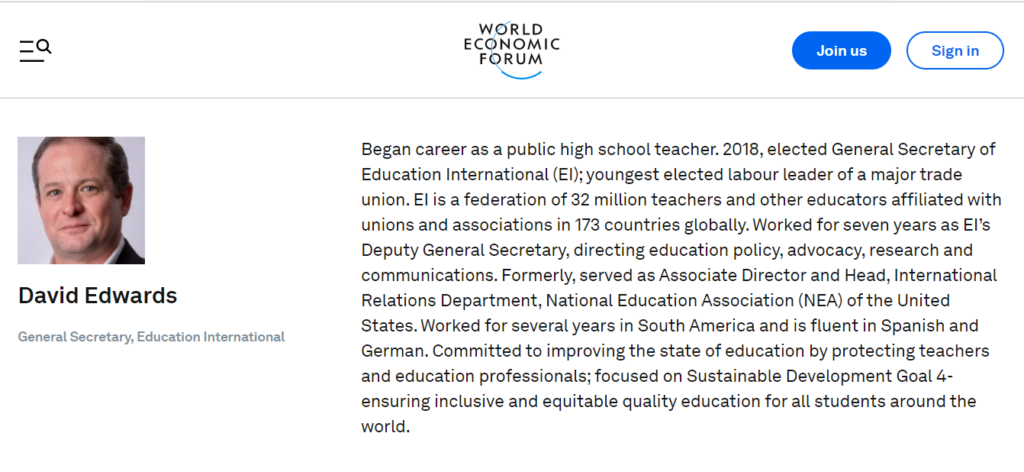

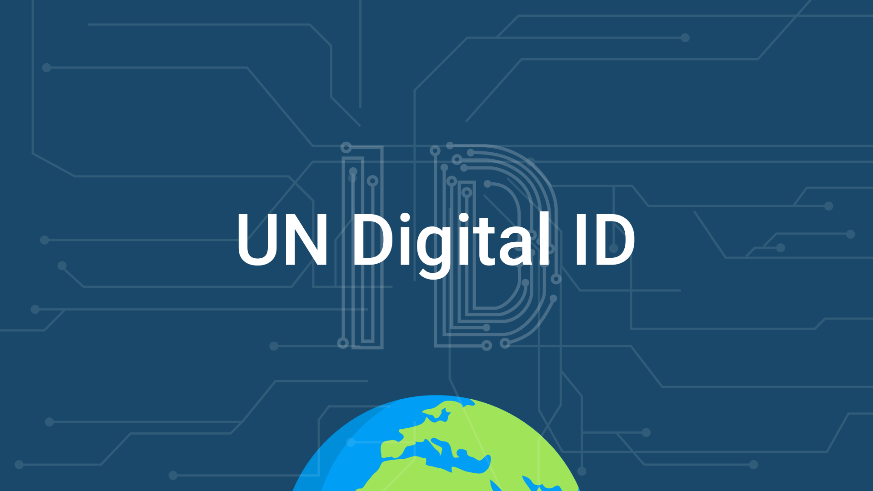
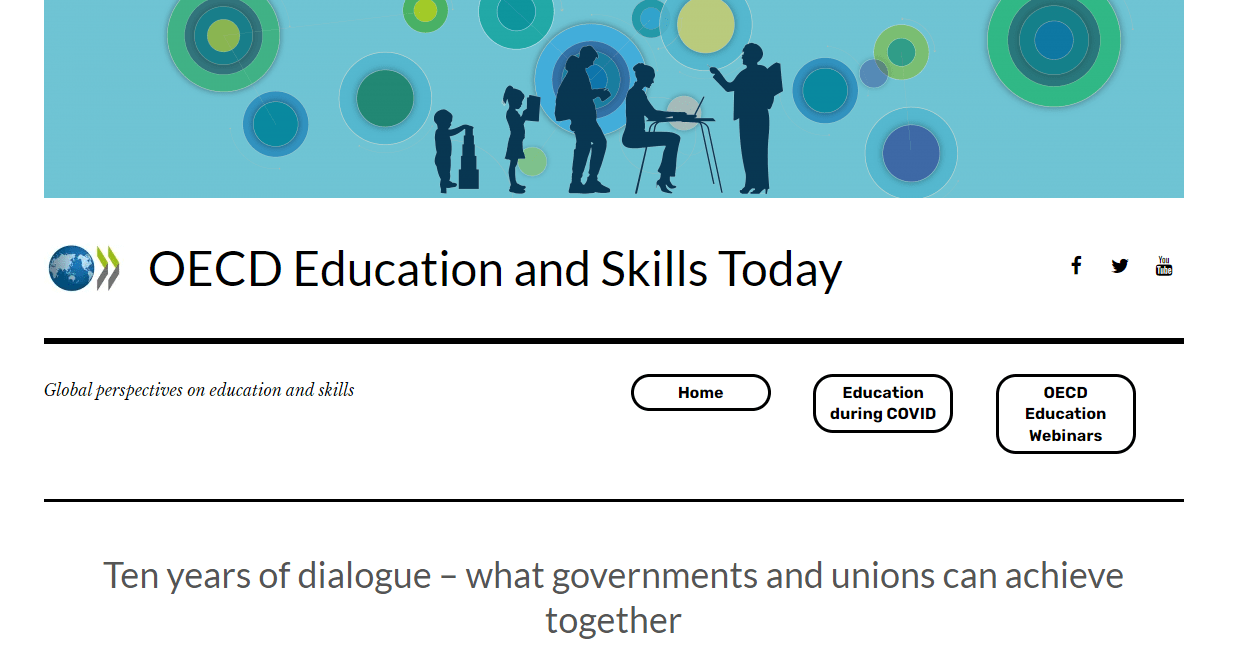
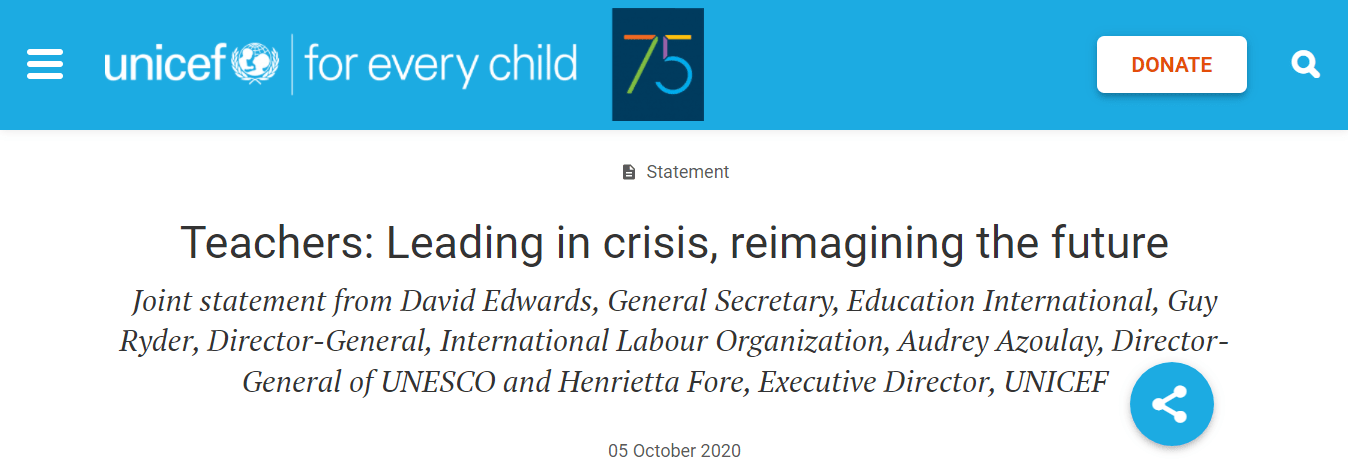
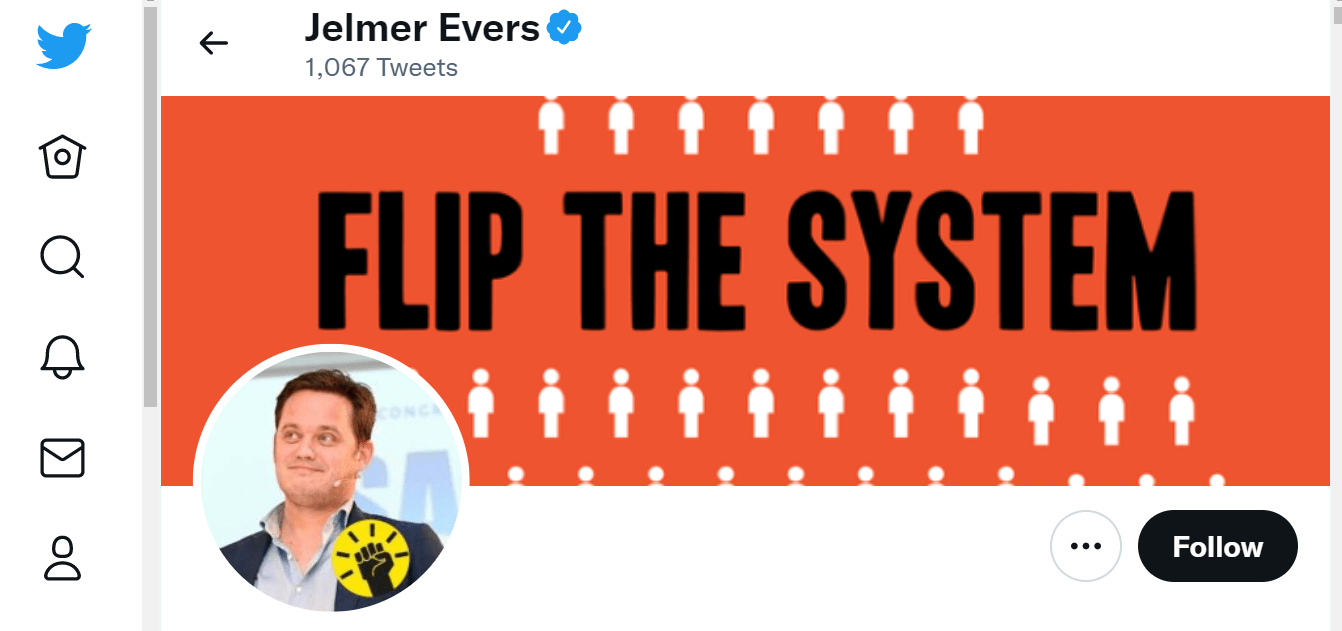



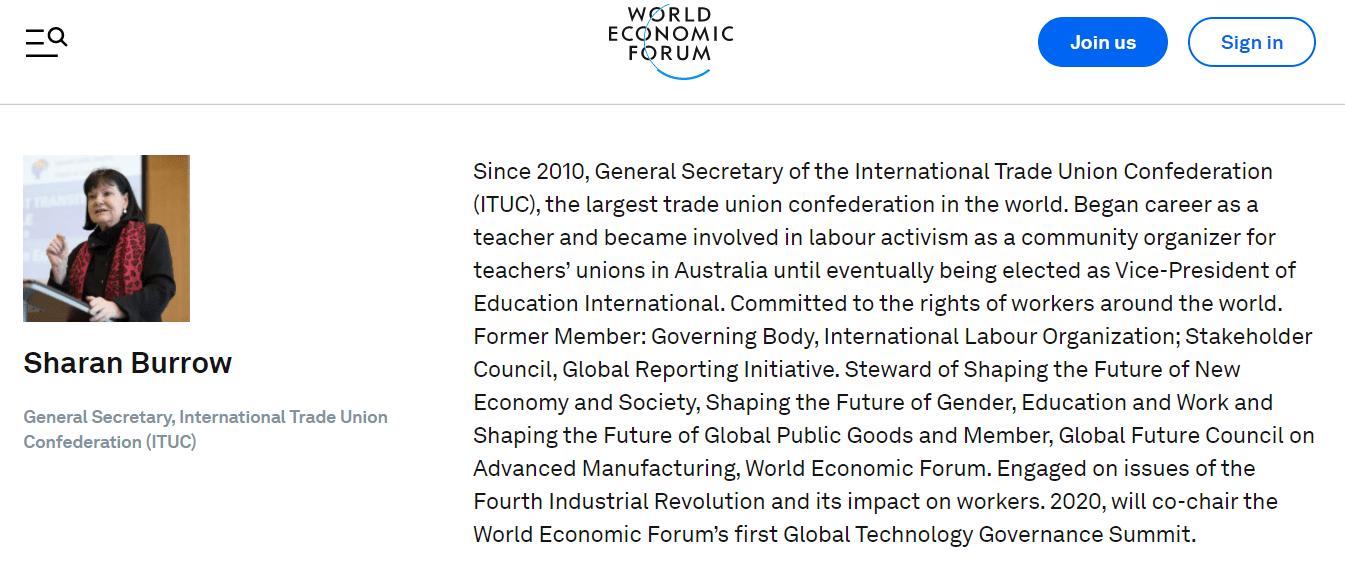
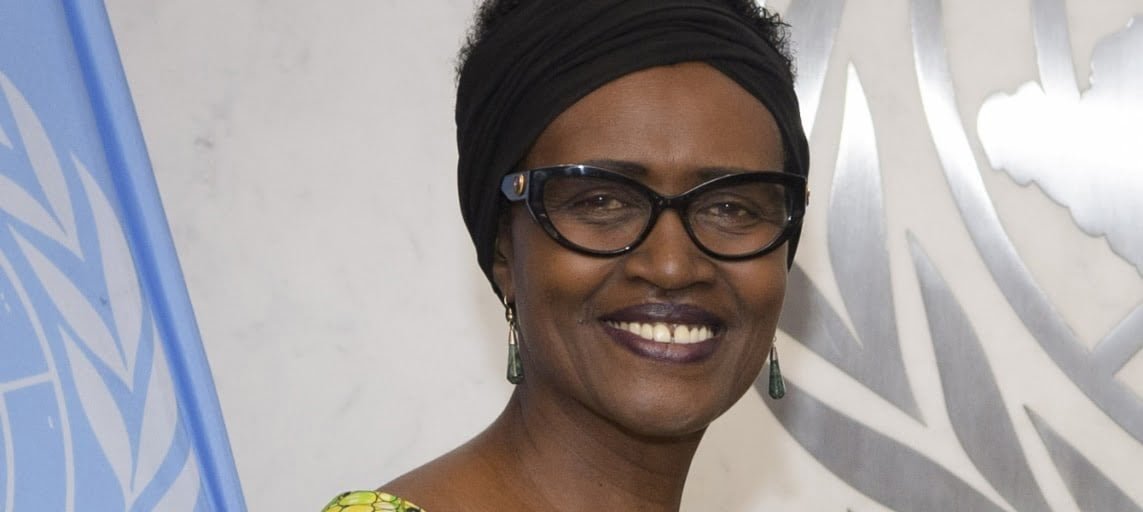
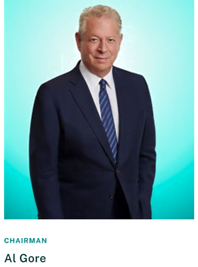


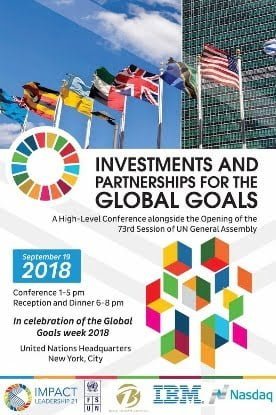
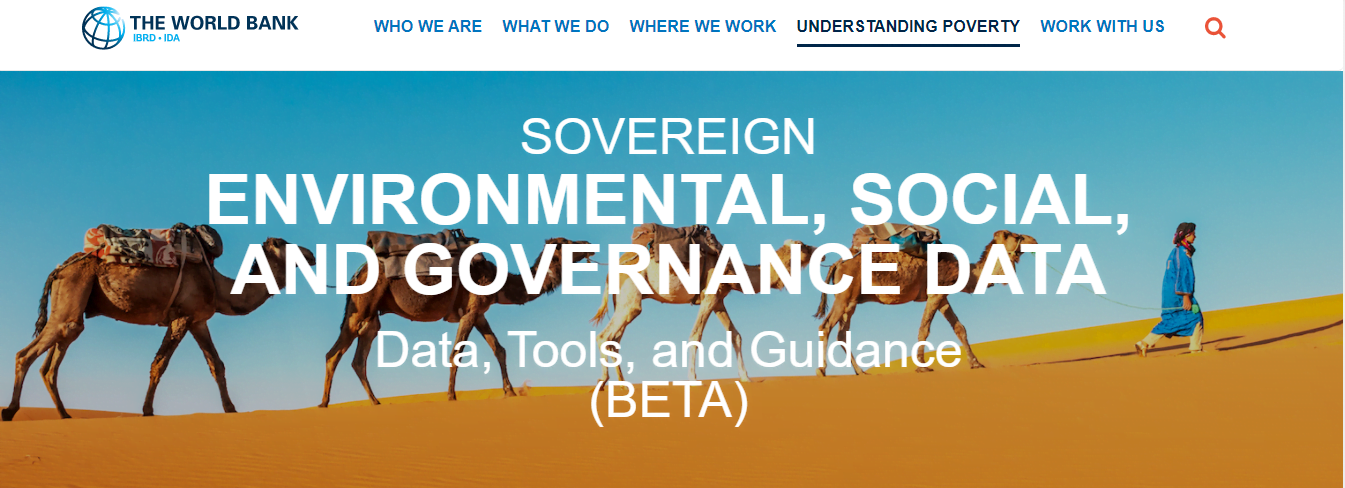




This article shows an agenda of Inverted-Totalitarianism on steroids. You can not coexist successfully with totalitarianism. The ONLY way to successfully deal with totalitarianism is to violently and totally eradifate it. In this case, since the glonal-cabal controls over 95% of the world’s government, people will have to totally and violently eradicate the totalitarian government that they live under.
This globalist elites have managed to indoctrinate many young people, as well as capture much of the media, and rig elections, especially in the US. Therefore, their globalist fascist agenda will be very hard to defeat via the ballot box. It looks like another Fourth Turning is upon us, and at a global level.
I’ve read: ‘Brave New World’ and ‘1984’ both examples of how a modern dystopia may present; especially, if you have a poor social credit rating. However, I do wish my grade twelve chemistry teacher was an ‘AI’ powered android, with all the patience in the world, speaking in flawless standard English, and with enough guile to bounce the class clown out into the hall. I would have enjoyed chemistry. Reading this article about education: it all sounds and looks too sweet. the Industrial Revolution was not planned by an elite committee, it was a convergence of creative and skilled people.